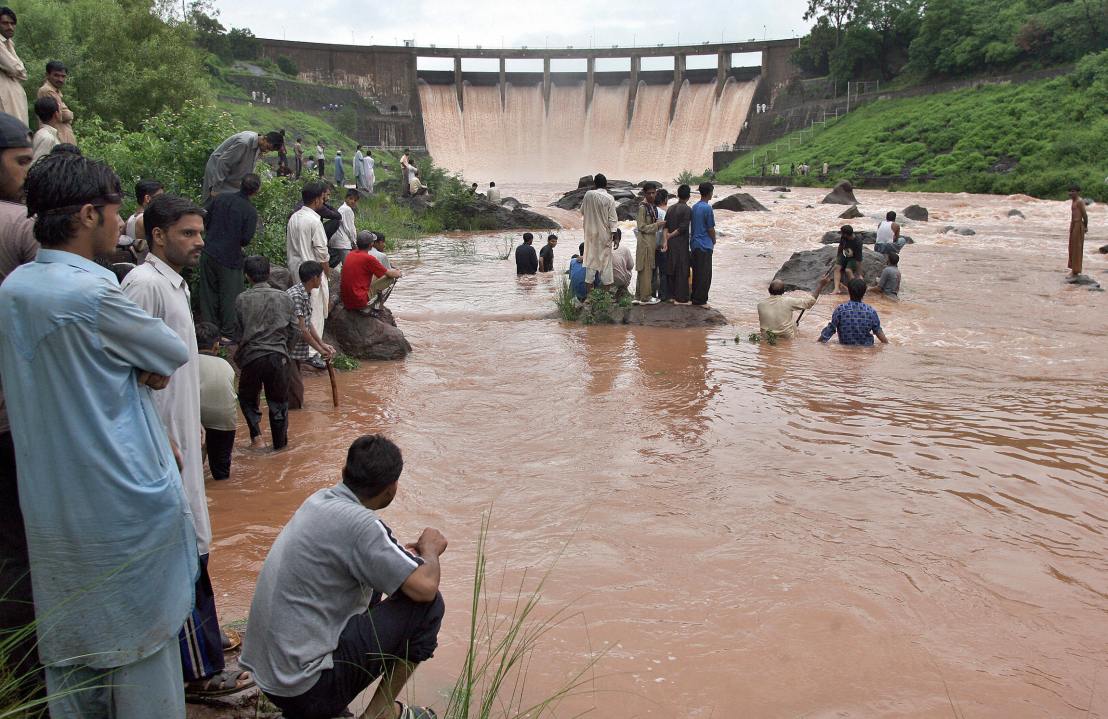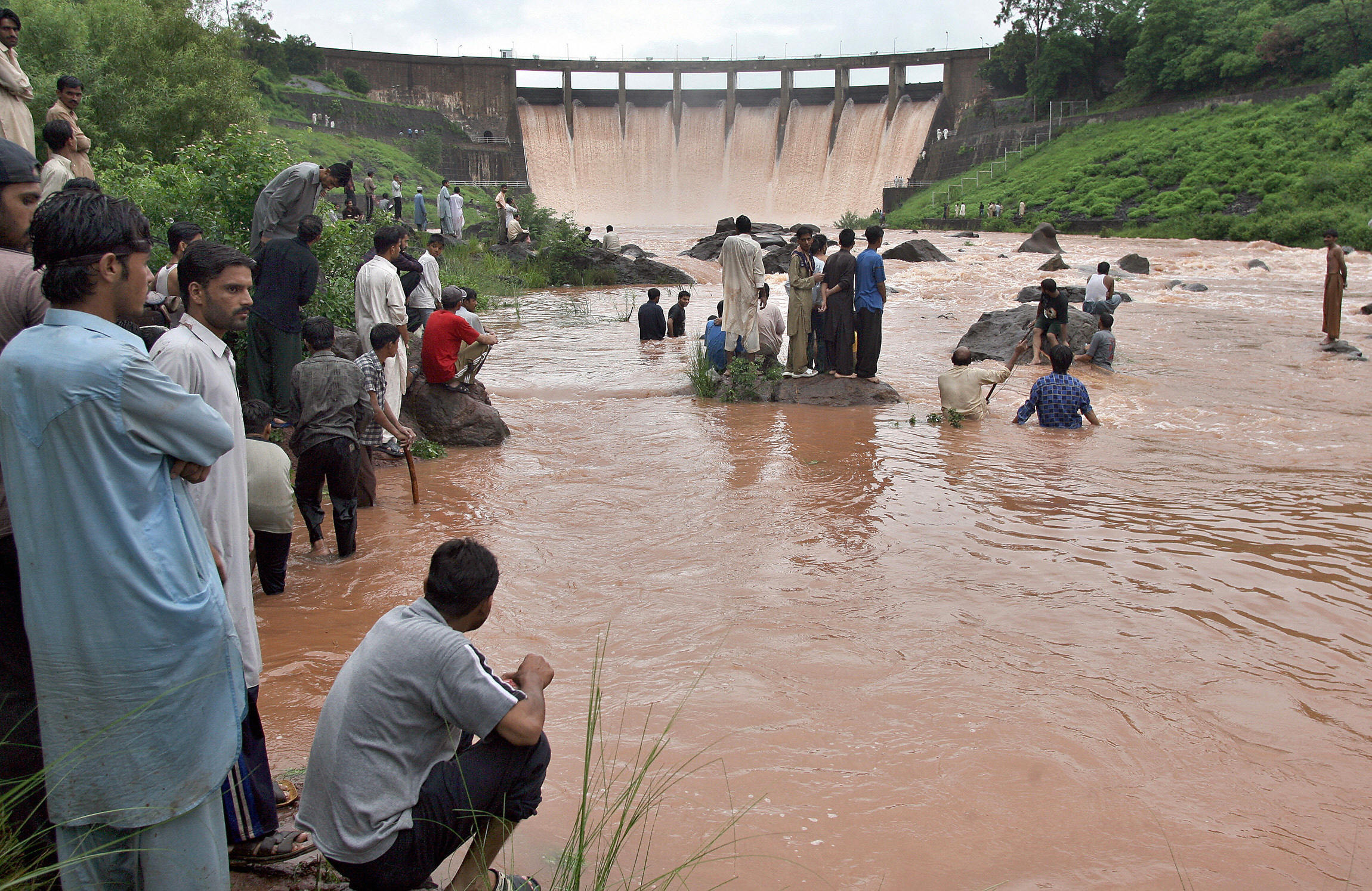 Geo TV is running an evening show in Urdu called “The Great Debate” in which the representatives of the major parties are each given three-minute slots to air their views on an election subject, after which they are each interrogated by a Geo chair before going through to two, more detailed, rounds. Experts are in the audience to challenge the speakers.
Geo TV is running an evening show in Urdu called “The Great Debate” in which the representatives of the major parties are each given three-minute slots to air their views on an election subject, after which they are each interrogated by a Geo chair before going through to two, more detailed, rounds. Experts are in the audience to challenge the speakers.
On Friday 15th February the issue was water. A recent report in the News has some alarming figures, and one study from two years ago estimated that only 20 per cent of the population have access to a clean, safe supply. Water shortages, the building of dams, and who gets water; these subjects are toys for Pakistani politicians to play with while many Pakistani subjects die of water-borne diseases. The PPP, MQM, ANP, PML (N), PML (Q) and the MMA were all on the show.
Water is just one topic on a varied agenda for candidates contesting 272 National Assembly seats in the Pakistani House of Commons. 10 extra seats are reserved for non-Muslims and 60 for women.
On February 18th, 577 Provincial seats will be fought over, and the total number of places secured by each political party in the Provinces will determine the proportionate representation of each group at National Assembly level. In the Provinces, 23 seats are reserved for non-Muslims and 128 for women.
Unlike in America, Pakistani nationals outside their country will not be voting, though umbilical links to the motherland are well documented. Abdul Basit, Deputy Pakistani High Commissioner to London, says the numbers make the logistics too difficult.
Aiysha Varriach, a trainee solicitor in London, would have loved to take part in the political process:“There are 272 constituencies; our missions abroad cannot put up so many ballot boxes. it is not easy in parliamentary elections.” He adds, “Overseas Pakistanis have been able to cast their vote in the past in referenda etc.”
These elections are different to their British and American counterparts in many ways. Geo TV is reporting that television networks are not going to be allowed to show the election results as they happen.“America has made sure to facilitate every possible way for their overseas citizens to vote – via online voting, postal voting, or voting at the embassies where the Americans reside. I think such a step for Pakistanis to be facilitated would be quite remarkable and could actually make a difference to the voter outcome.”






Comments